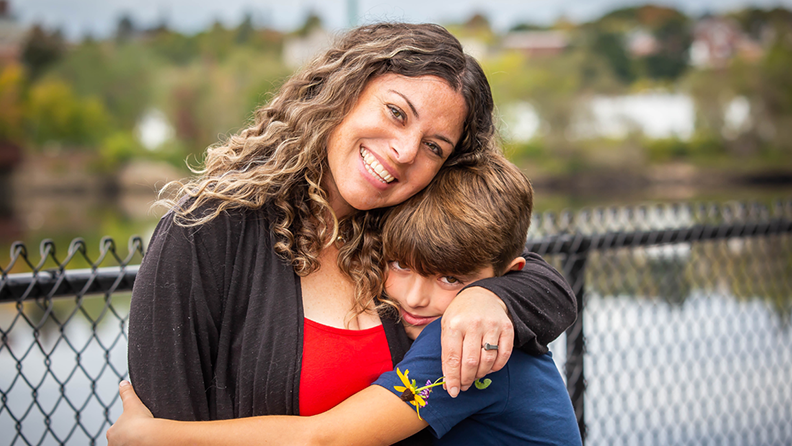
Business Students Connect with the Community Through Philanthropy
Lisa Liberatore and her family strongly believe in philanthropy and community building. An adjunct professor, entrepreneur, author, and investor, Liberatore teaches her son the importance of fundraising and volunteering. Together, she and Dorian have made a difference through their volunteerism throughout the Greater Bangor region. If her elementary school kid could find success and fulfillment in giving back, she knew her college students could, too.
“Nonprofits are powerful drivers of the economy and community,” Liberatore says. “I wanted to help my students be better stewards of the community and show them the impact they can have.”
She had management students in her two classes, Intro to Business and Principles of Management and Organization, form into teams and choose a nonprofit organization for their semester-long project. With an overall goal of fundraising, students created plans on how to raise funds and awareness of their chosen organization.
The Intro to Business course, typically made up of first-year business students, raised more than $2,000. They logged more than 50 volunteer hours on their projects. The nonprofits that benefitted included the Beth C. Wright Cancer Center, Birchtree Center, Give a Dog a Home Rescue, Hope for the Homeless, Maine Wild Blueberry Museum, Operation Homefront, Orono Land Trust, Rape Response Services, Shaw House, and Shriners Hospitals.
The Principles of Management students, sophomores and juniors, raised more than $4,400. The nonprofits they worked for were Action Against Hunger, Good Shepherd Food Bank, Maine Parkinson Society, Old Town Animal Orphanage, and the Wounded Warrior Project.
Pedro Souza’s group had the goal of raising awareness of the Wounded Warrior Project. Pedro grew up with a father who participated in missionary work in his home country of Brazil and Africa. He credits the number of people his group was able to reach with the success of their fundraising. “I was able to use my church community to help me raise money,” Souza says. “Finding communities that our group members are already a part of to help was major.”
Allison Fetha chose to work with the Good Shepherd Food Bank because her mother had had a positive volunteer experience with the nonprofit organization. “I read a lot of information about food insecurity in Maine,” she says. “With the ongoing pandemic, it felt like it would be a great cause to work with.”
Her most significant takeaway from this class was learning to problem solve when plans change. For example, her group’s detailed plans faced fundraising obstacles throughout the semester, causing the team to pivot. “One of the main lessons in the class is that business and personal plans won’t remain static,” Fetha says. “This project helped show us how to adapt when you have due dates and people relying on you.”
It makes Liberatore proud to see her students’ incredible results. “These students were able to make a real impact while learning valuable skills,” Liberatore says. “They got outside their comfort zone and leveraged their networks for the greater good.”
